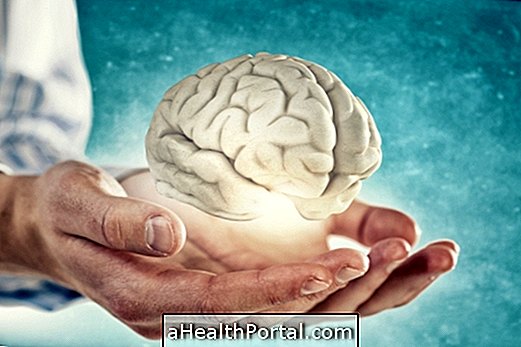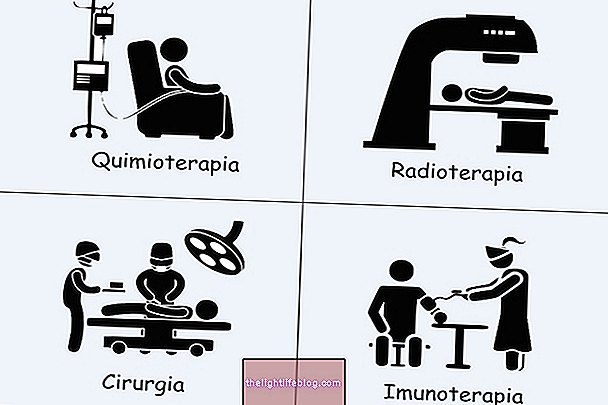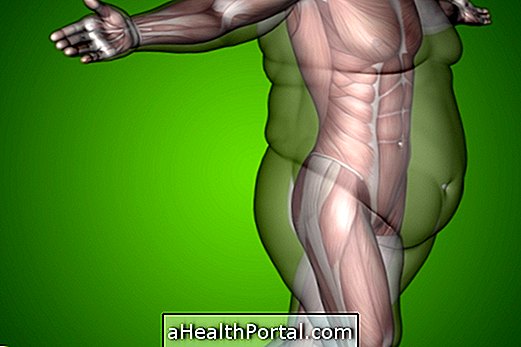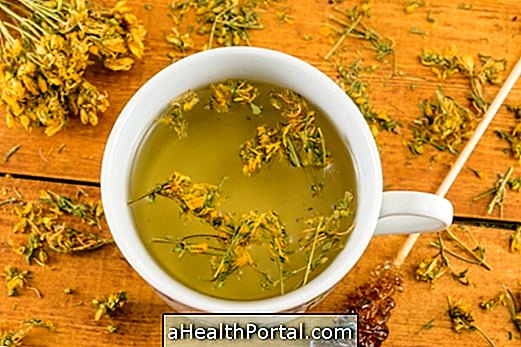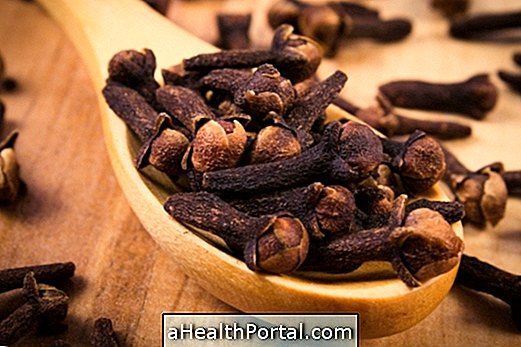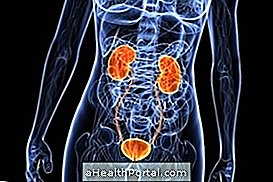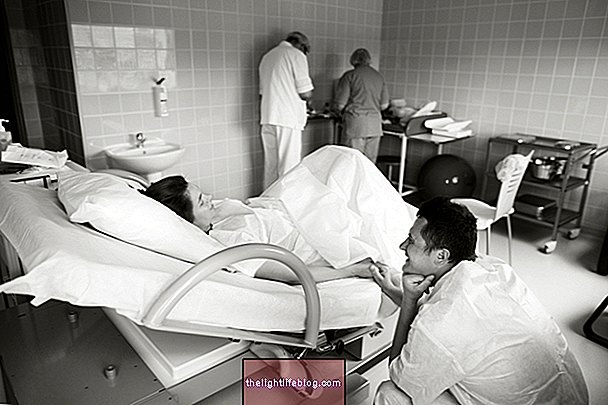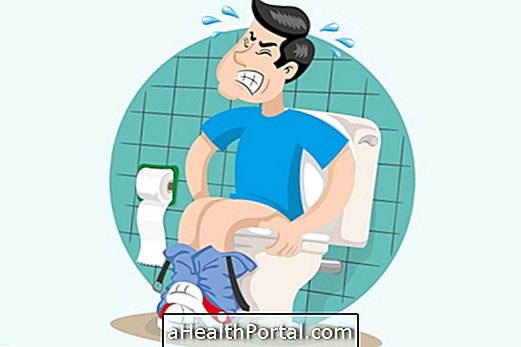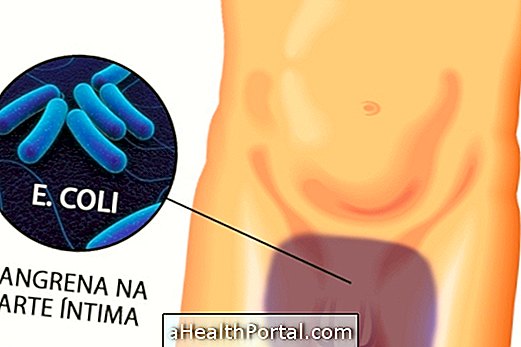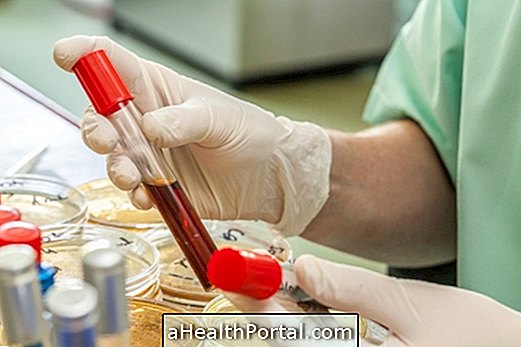The intestine is a tube-shaped organ that extends from the end of the stomach to the anus, allowing the passage of the digested food and being about 7 to 9 meters in length.
The intestine is one of the most important parts of the digestive system and can be divided into 2 main parts:
- Small intestine : It is the first part of the intestine, which connects the stomach to the large intestine. It is the longest part of the intestine, about 7 meters long, where it absorbs some water and absorbs most nutrients, such as sugars and amino acids.
- Large intestine : is the second portion of the intestine and is about 2 meters long. It is the smallest part of the intestine, but the most important in the absorption of water, since it is here that 60% of the water is absorbed into the body.
Throughout the entire intestine, there is a flora of bacteria that help in the digestive process as well as keeping the intestine healthy and free from other pathogenic bacteria that can be ingested with food. To maintain a healthy intestinal flora, one should focus on the consumption of probiotics, both through food and supplements.
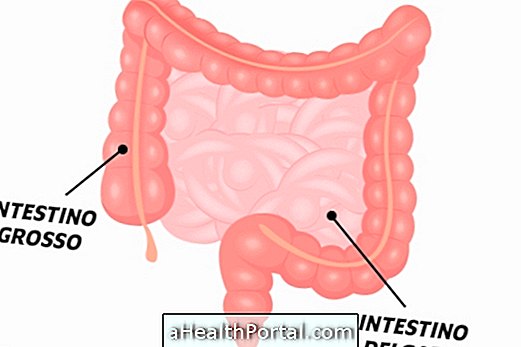
Main functions
The main function of the intestine consists of food digestion and absorption of nutrients and water, to keep the body nourished, hydrated and functioning properly.
In addition, the intestine also allows the elimination of toxins and other products that can not be absorbed by the body, which end up being eliminated in the form of feces.
For many years, these were the two major functions attributed to the gut. However, in recent years, several studies point to the gut as an important endocrine organ that helps in the production of hormones and neurotransmitters that influence the functioning of the whole body as well as mental health. It is for this reason that the intestine has been called the second brain.
Symptoms that may indicate bowel problems
Symptoms that usually indicate that you may be developing or developing a bowel problem may include:
- Diarrhea or constant constipation;
- Excess intestinal gas;
- Swollen belly;
- Frequent abdominal cramps;
- Presence of blood in faeces;
- Very dark stools with foul smell;
- Loss of appetite and weight;
In addition, any change in the color, consistency or smell of the stool may be a sign of some intestinal disease, especially when it lasts longer than 1 week.
Check out what the stool color can tell you about your health.
What doctor consult
The gastroenterologist is the most qualified physician to treat bowel diseases or to diagnose problems that are causing changes in the stool or leading to the onset of other intestinal-related symptoms.

Possible bowel diseases
There are several diseases that can affect the correct functioning of the intestine, but one of the most serious and that seems to present a great growth rate over the years is colorectal cancer, in which the cells lining the organ undergo changes, leading to the growth of tumors.
Other less serious but also common diseases include:
1. Intestinal infections
Intestinal infections, also known as enteritis, are relatively common throughout life and happen mainly when eating spoiled foods that lead to an increase in the amount of pathogenic bacteria in the gut.
The most common signs of a bowel infection include severe diarrhea, excessive tiredness, fever, vomiting, and loss of appetite. See how treatment is done and when it is necessary to use medicine.
2. Celiac disease
It is a chronic disease in which the intestine does not have the ability to digest the gluten present in foods such as bread, biscuits, pasta or beer, for example, resulting in symptoms such as frequent tiredness, swollen belly, severe abdominal pain or loss of appetite.
Celiac disease, also known as gluten intolerance, happens because the body does not produce the enzyme needed to degrade gluten, which causes small lesions in the intestine and leads to an overreaction of the immune system.
Understand more about celiac disease, its symptoms and how to treat it.
3. Crohn's disease
This is another chronic bowel disease that causes a persistent inflammation of the lining of the organ, leading to symptoms such as severe diarrhea, cramps, nausea and weight loss. Due to the intense inflammation, Crohn's disease can cause small wounds in the intestine over time, which end up worsening the symptoms.
Since it does not have a specific cause, Crohn's disease also has no cure, however, the treatment indicated by the doctor helps to alleviate the symptoms, improving the quality of life.
Take our online symptom test to find out if you can have Crohn's disease.
4. Irritable bowel
Irritable bowel syndrome also causes a slight inflammation of the bowel with symptoms similar to Crohn's disease, however, this inflammation is not always present and therefore does not cause intestinal wounds.
The most common symptoms are periods of intercourse with constipation, excessive gas and recurrent abdominal pain, which can be intensified during periods of increased stress or after consumption of specific foods such as coffee, alcohol or processed food.
Look at other foods that may worsen the symptoms and take our test to see if you can have the disease.
5. Hemorrhoids
Hemorrhoids can also be chronic problems, but usually they appear for a short time, disappearing again with the proper treatment. Hemorrhoids are dilated veins of the anal region that can be internal or external.
The most common symptoms include the presence of bright red blood in the stool, an itchy anus, and pain when stooling. In addition, in external hemorrhoids it is also possible to feel or observe a small mass near the anus.
See more about the symptoms, causes and treatment of hemorrhoids.


